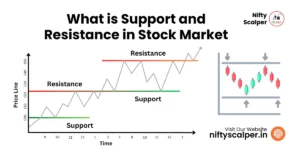Market Regulations: Understanding SEBI Guidelines, Investor Protections, and Stock Exchanges in India
The Indian stock market operates under a robust regulatory framework to ensure transparency, protect investors, and maintain fair practices. Regulatory bodies like SEBI (Securities and Exchange Board of India) and stock exchanges like NSE (National Stock Exchange) and BSE (Bombay Stock Exchange) play pivotal roles in the smooth functioning of the market. Here’s an in-depth look at the key aspects of market regulations in India. keyword: Understanding market regulations.
1. Role of SEBI in Market Regulation
SEBI is the primary regulatory authority for the securities market in India. Established in 1988 and given statutory powers in 1992, SEBI ensures the market’s integrity and investor confidence.
Key Functions of SEBI:
- Investor Protection: Safeguards investors from fraudulent practices by ensuring transparency and fairness.
- Market Development: Promotes best practices and technological advancements in trading and settlement processes.
- Regulatory Oversight: Monitors intermediaries like brokers, depositories, and mutual funds to ensure compliance.
Important SEBI Guidelines:
- Disclosure Requirements: Companies must disclose material information to maintain transparency.
- Prohibition of Insider Trading: Strict regulations to prevent unfair advantages from non-public information.
- Takeover Code: Rules governing the acquisition of substantial stakes in companies to protect minority shareholders.
2. Investor Protections in India
Investor protection is at the core of India’s market regulations. SEBI, along with other entities, ensures investors’ rights are safeguarded through various measures.
Key Investor Protections:
- Investor Education and Awareness: SEBI’s initiatives educate investors about risks, rights, and responsibilities.
- Grievance Redressal Mechanisms: Platforms like SCORES (SEBI Complaints Redress System) address investor complaints efficiently.
- Fraud Prevention: Strict penalties for manipulative activities like pump-and-dump schemes and circular trading.
- Investor Compensation: Mechanisms like the Investor Protection Fund (IPF) provide compensation in case of broker defaults.
Tips for Investors:
- Verify the authenticity of brokers and financial advisors through SEBI’s registered lists.
- Read offer documents carefully before investing in IPOs or mutual funds.
- Monitor your portfolio regularly and be cautious of unsolicited stock tips.
3. Stock Exchanges in India
India’s stock exchanges provide a platform for trading securities, ensuring liquidity and price discovery. The NSE and BSE are the two primary exchanges.
National Stock Exchange (NSE):
- Established in 1992, it is the largest stock exchange in India by market capitalization.
- Known for technological advancements and a fully automated trading system.
- Key indices: Nifty 50, Nifty Bank.
Bombay Stock Exchange (BSE):
- Asia’s oldest stock exchange, established in 1875.
- Provides a wide range of trading options, including equities, derivatives, and debt instruments.
- Key indices: Sensex, BSE 500.
Role of Exchanges in Market Regulation:
- Ensure fair trading practices and reduce systemic risks.
- Monitor trading activities and impose penalties for violations.
- Maintain investor confidence by enforcing strict compliance standards.
4. Importance of Compliance and Penalties
Compliance with market regulations is mandatory for all participants, including companies, brokers, and investors.
Consequences of Non-Compliance:
- Heavy fines and penalties imposed by SEBI or exchanges.
- Suspension of trading activities or licenses for intermediaries.
- Legal action against entities involved in fraudulent practices.
Recent Examples:
- SEBI’s crackdown on insider trading has resulted in high-profile penalties.
- Actions against pump-and-dump schemes protect retail investors.
Conclusion
Understanding market regulations, SEBI guidelines, and the functioning of stock exchanges is crucial for every investor. These regulations not only protect investors but also ensure the stability and integrity of the Indian stock market. By staying informed and adhering to regulatory norms, you can navigate the market confidently and make well-informed investment decisions. Remember, compliance is not just a legal requirement but a key to fostering trust and growth in the financial ecosystem.




